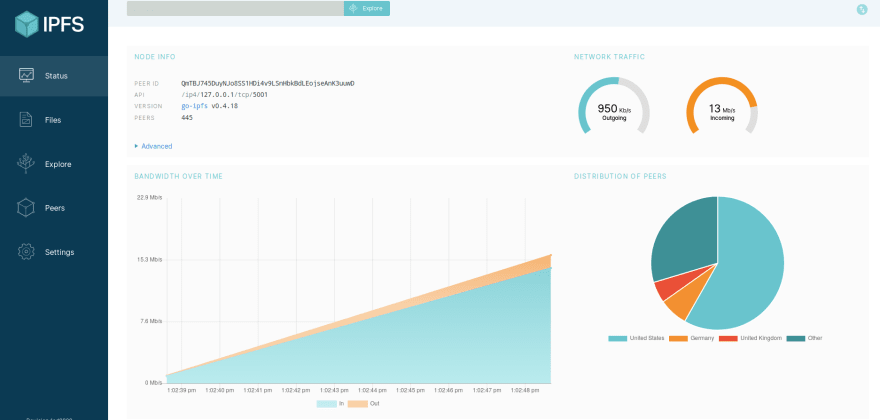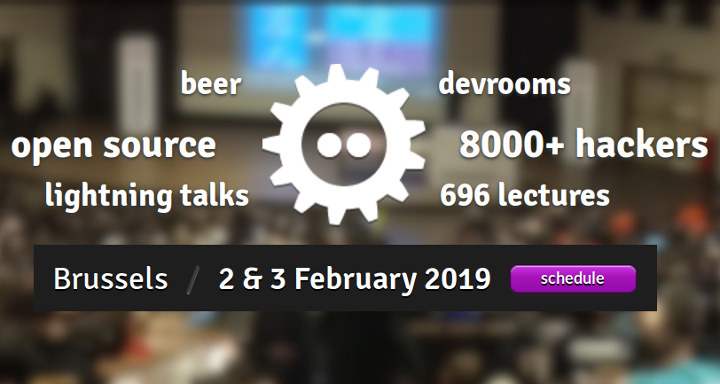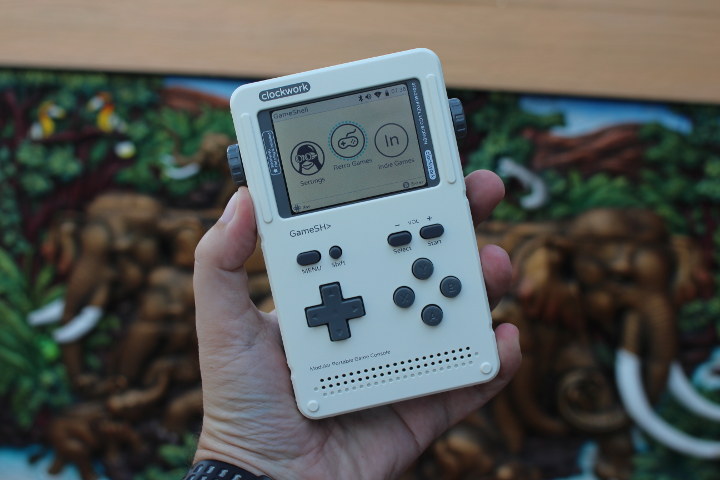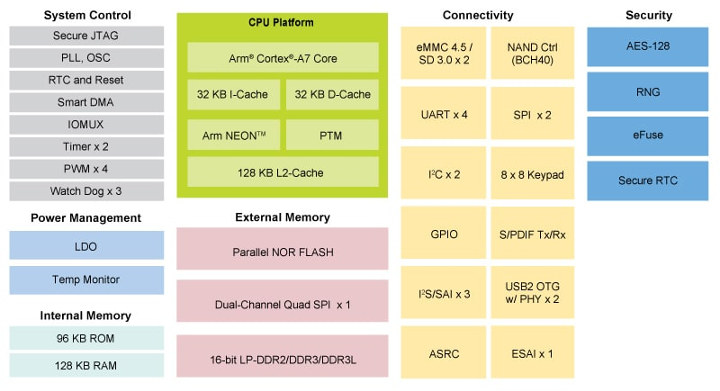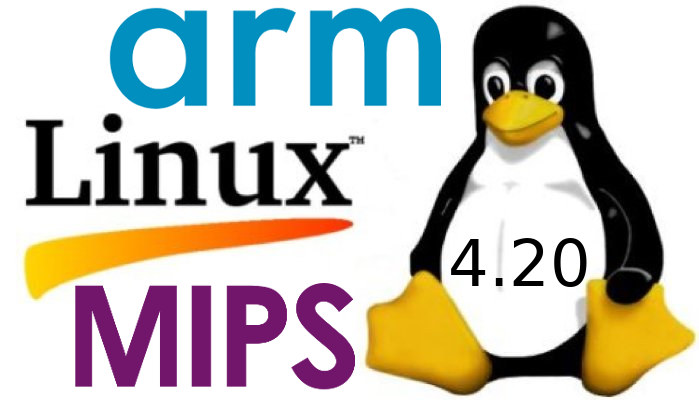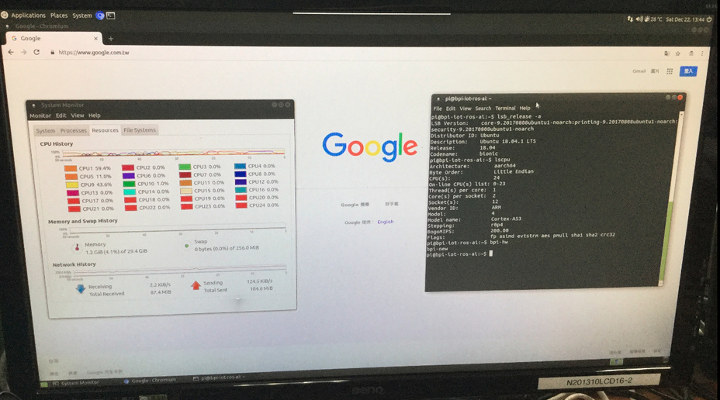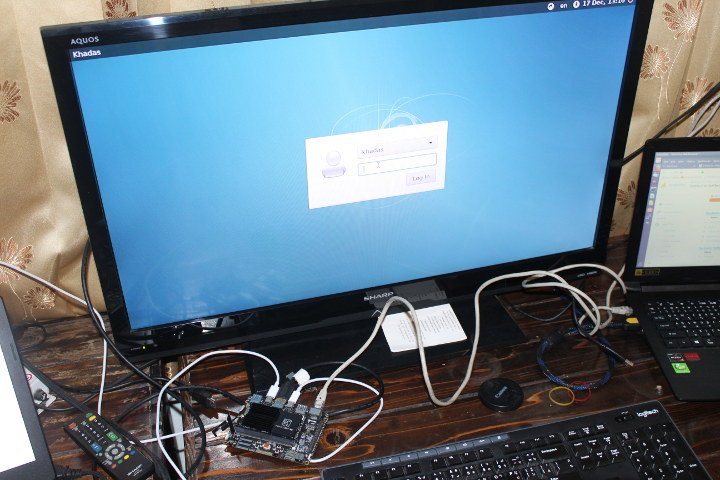Several weeks ago, I wrote about the upcoming “Necuno Mobile” phone made by a company called Necunos and running Linux on NXP i.MX6 Quad processor. The phone was supposed to be 100% open source hardware which all software and hardware resources to be made available publicly. There has been progress since then, as well as a name change since Necunos NC_1 is now up for pre-order for 1,199 Euros including VAT and international shipping with delivery promised in March 2019. Necunos NC_1 specifications are said to include: SoC – NXP i.MX 6Quad quad-core Arm Cortex-A9 processor with Vivante GPU System Memory – 1GB RAM Storage – 8 GB storage Display – 5″ touchscreen (attached or detached) Audio – 3.5mm audio jack, built-in microphone, and speaker Connectivity – 2.4 GHz 802.11 b/g/n WiFi Misc – Power, volume, and user programmable buttons USB – 1x micro USB port Battery – 3,500 mAh […]
IPFS Distributed, Resilient Internet Protocol Aims to Replace HTTP
HTTP(S) is the protocol used to retrieve content from the Internet, and files are stored in a server with all clients downloading files from this location. It works fine, but also comes with shortcomings such as traffic costs for the content provider, lack of resiliency if the server is down, and lack of persistence as for example all files hosted on GeoCities web hosting service are now gone. Having all files hosted on a single server also makes it too easy for governments or companies to censor content. But while looking at FOSDEM 2019 schedule yesterday, I found out an initiative aiming to solve HTTP shortcomings had been in development for several years, IPFS (InterPlanetary File System) is a described as a peer-to-peer hypermedia protocol to make the web faster, safer, and more open, with the ultimate goal of replacing HTTP. The four main advantages over HTTP listed for the […]
FOSDEM 2019 Open Source Developers Meeting Schedule
FOSDEM – which stands for Free and Open Source Software Developers’ European Meeting – is a free-to-participate event where developers meet on the first week-end of February to discuss open source software & hardware projects. FOSDEM 2019 will take place on February 2 & 3, and the schedule has already been published with 671 speakers scheduled to speak in 711 events themselves sorted in 62 tracks. Like every year, I’ll create a virtual schedule based on some of the sessions most relevant to this blog in tracks such as open hardware, open media, RISC-V, and hardware enablement tracks. February 2 10:30 – 10:55 – VkRunner: a Vulkan shader test tool by Neil Roberts A presentation of VkRunner which is a tool to help test the compiler in your Vulkan driver using simple high-level scripts. Perhaps the largest part of developing a modern graphics driver revolves around getting the compiler to […]
ClockworkPi GameShell Review – Part 1: Unboxing & Assembly Guide
ClockworkPi Gameshell is a portable retro gaming console kit designed to be hackable being powered by Allwinner R16 processor to run Linux, as well as an Arduino compatible Atmel AVR MCU. It’s partially open source hardware with PDF schematics, and firmware source code available on Github. The device launched last year on Kickstarter, raised close to $300,000, and started shipping to backers last summer. The company has now sent me a sample for review, so let’s have a look. The first part of the review will be more than just an unboxing, since the game console is meant to be assembled by the end user, and I’ll report my experience doing so. ClockworkPi Gameshell Unboxing The kit comes in a fairly large package that reads “GameShell – Redefine Portable Game Console” and lists the main specifications with quad core Cortex A7 processor, WiFi and Bluetooth connectivity, 1GB RAM, 16GB micro […]
NXP i.MX 6ULZ Cost Efficient Processor Drops Ethernet, Display, & Camera Interfaces
Freescale i.MX 6 processor was first announced in January 2011, and in the first few years I covered many products and development boards based on the single to quad core Cortex A9 processor. Further down the road, the company became part of NXP, and launched Cortex A7 variant such as i.MX 6ULL providing both lower costs and power consumption. But now, I usually skip new products based on i.MX6 because they are often just more of the same, and not really new worthy. But yesterday while writing about Linux 4.20 release, I realized I missed the announcement of i.MX 6ULZ processor similar to i.MX 6UL (UltraLight), but cost optimized for applications that do not require Ethernet, display, nor camera interfaces. NXP i.MX 6ULZ key features and specifications with differences with i.MX 6UL highlighted in bold or stricken-through: CPU – ARM Cortex A7 core @ up to 900 MHz with 128KB […]
Linux 4.20 Release – Main Changes, Arm and MIPS Architectures
After Greg K-H handling Linux 4.19 release, Linus Torvalds is back at the helm, and released Linux 4.20 just before Christmas: Let’s face it, last week wasn’t quite as quiet as I would have hoped for, but there really doesn’t seem to be any point to delay 4.20 because everybody is already taking a break. And it’s not like there are any known issues, it’s just that the shortlog below is a bit longer than I would have wished for. Nothing screams “oh, that’s scary”, though. And as part of the “everybody is already taking a break”, I can happily report that I already have quite a few early pull requests in my inbox. I encouraged people to get it over and done with, so that people can just relax over the year-end holidays. In fact, I probably won’t start pulling for a couple of days, but otherwise let’s just […]
Banana Pi to Launch a 24-Core Arm Server
SinoVoIP has been offering Banana Pi single board computers for several years. Their boards are generally based on Arm processors, offered at a relatively decent price, although not as quite as good value as FriendlyELEC and Orange Pi ones. The company is also known for providing subpar documentation and firmware images, but a fairly active community still formed around their boards 🙂 The company has now demonstrated something a little different with a 24-core Arm server that should eventually be sold as a Banana Pi server board or actual server, as the full details are yet to be known. We did not get a glimpse at the actual hardware, but the blurry photo above gives some clues. We have 24-core Arm Cortex A53 processor with 32GB RAM (29.4GB seen by the OS) running Ubuntu 18.04.1 LTS with MATE desktop. There aren’t that many 24-core Arm Cortex A53 processors, so unless […]
Khadas Captain / Edge SBC Review – Part 2: Ubuntu 18.04
I received Khadas Edge Developer Package with Khadas Edge RK3399 module, Khadas Captain carrier board, and several accessories a few weeks ago, and after checking the hardware in the first part of the review, I’ve now taken the time to review software support, specially Ubuntu 18.04 on the board. Khadas Edge / Captain Firmware There are currently four main choices of firmware for Khadas Edge / Khadas Captain: Ubuntu 18.04 OS with LXDE desktop environment @ https://dl.khadas.com/Firmware/Edge/Ubuntu/ Android ROM @ https://dl.khadas.com/Firmware/Edge/Android/ with Android Nougat being a proper release, Android Oreo (available now) a temporary version that will not be supported, and Android P that will be released and supported by Rockchip later on in 2019 Armbian RK3399 for Khadas Edge looks to be work-in-progress right now LibreELEC for playing videos on the platform I decided to focus on Ubuntu 18.04 for this review, and Karl who has his own sample […]



